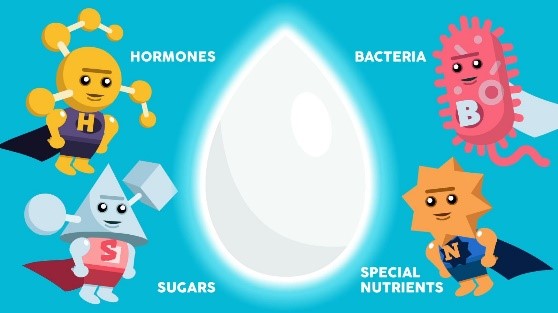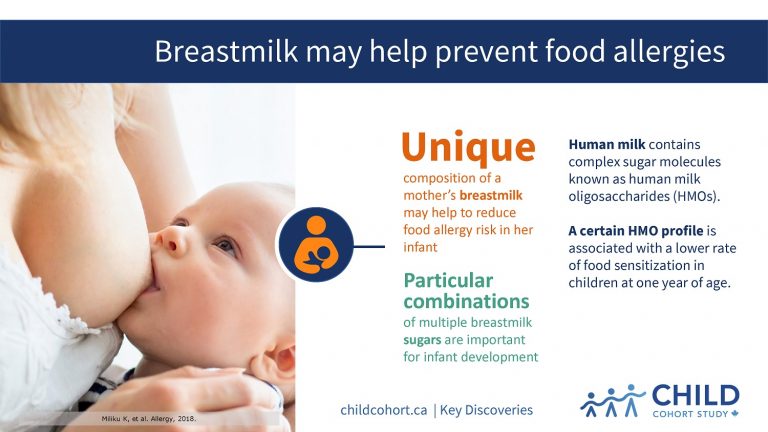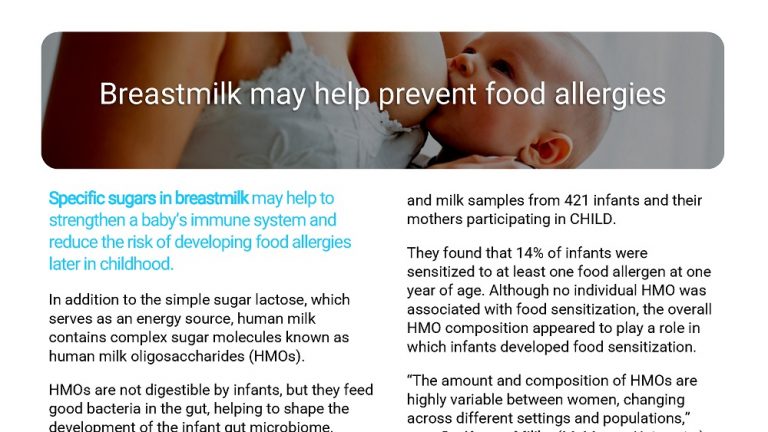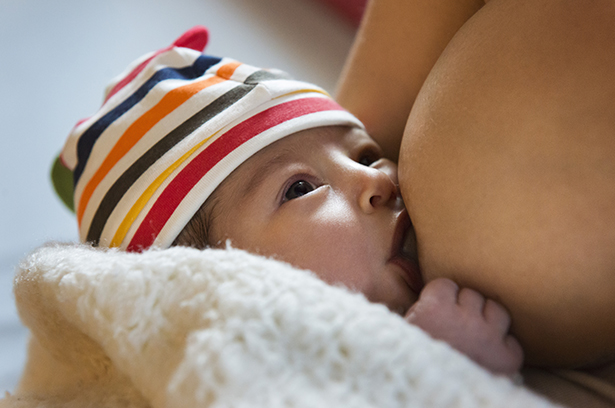Breastmilk may help prevent food allergies
Specific sugars in breastmilk may help to strengthen a baby’s immune system and reduce the risk of developing food allergies later in childhood.
In addition to the simple sugar lactose, which serves as an energy source, human milk contains complex sugar molecules known as human milk oligosaccharides (HMOs).
HMOs are not digestible by infants, but they feed good bacteria in the gut, helping to shape the development of the infant gut microbiome, which previous research suggests strongly influences allergic disease.
Dr. Meghan Azad has studied the breastmilk samples collected from mothers participating in CHILD for several years, and produced exciting research findings about breastfeeding and breastmilk components.
A BENEFICIAL HMO PROFILE
“In this project, we identified a ‘beneficial’ HMO profile that was associated with a lower rate of food sensitization in children at one year of age,” says Dr. Azad.
Collaborating with co-author Dr. Lars Bode from UC San Diego, the researchers analyzed data and milk samples from 421 infants and their mothers participating in CHILD.
They found that 14% of infants were sensitized to at least one food allergen at one year of age. Although no individual HMO was associated with food sensitization, the overall HMO composition appeared to play a role in which infants developed food sensitization.
“The amount and composition of HMOs are highly variable between women, changing across different settings and populations,” says Dr. Kozeta Miliku (McMaster University), a former postdoctoral fellow in Dr. Azad’s lab and first author of the study.
“These results suggest that particular combinations of HMOs are important for infant development,” adds Dr. Miliku.
“Our hope is that this study will guide future research that may identify the maternal and environmental factors that promote a ‘beneficial’ HMO profile and that we will better understand how these bioactive molecules contribute to an infant’s developmental programming and prevention of allergic disease.”
The research was published in the journal Allergy in May 2018.
Image from the CHILD Cohort Study breastfeeding video






